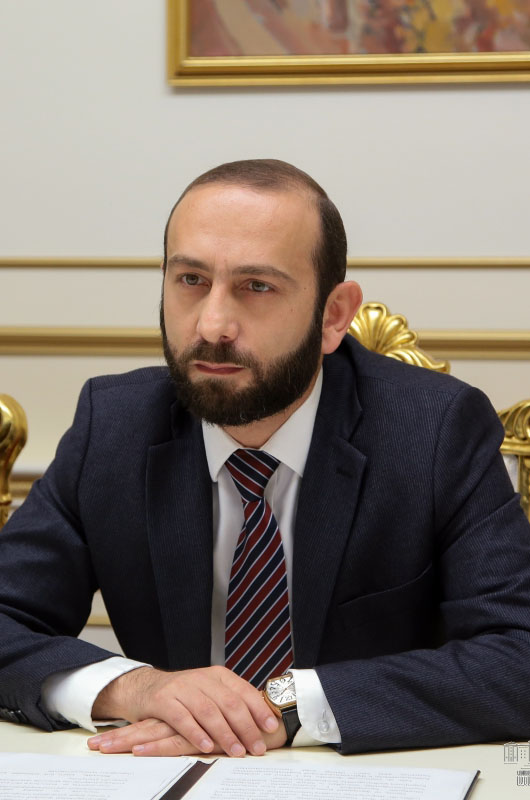Sponsored Content
Armenian Foreign Minister Visits Vienna Because of Nagorno-Karabakh's Worsening Humanitarian Situation
Armenia's Foreign Minister Ararat Mirzoyan is currently on a working visit to Vienna to participate in the Special Meeting of the OSCE Permanent Council initiated by Armenia, due to the deteriorating humanitarian situation in Nagorno-Karabakh. In addition, Mirzoyan met with Ghada Fathi Waly, the Director-General of the United Nations Office at Vienna and with Austrian Foreign Minister Alexander Schallenberg.
 Ararat Mirzoyan, Armenia's Foreign Minister, is currently in Vienna on a working visit. / Picture: © OSCE Parliamentary Assembly / Flickr Attribution (CC BY-SA 2.0, https://creativecommons.org/licenses/by-sa/2.0/)
Ararat Mirzoyan, Armenia's Foreign Minister, is currently in Vienna on a working visit. / Picture: © OSCE Parliamentary Assembly / Flickr Attribution (CC BY-SA 2.0, https://creativecommons.org/licenses/by-sa/2.0/)
Armenia called for the Special Meeting of the OSCE Permanent Council due to the deteriorating humanitarian situation in Nagorno-Karabakh caused by Azerbaijan's blockade of the Lachin Corridor. In the meeting, Armenia's Foreign Minister Ararat Mirzoyan emphasized that Azerbaijan's actions seek to subject the Armenians of Nagorno-Karabakh to ethnic cleansing. Mirzoyan stressed the imperative of clear actions by international partners to stop the inhuman blockade of the people of Nagorno-Karabakh.…
or Log In
Fast News Search





